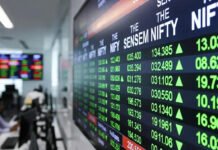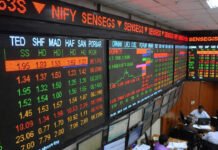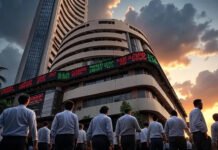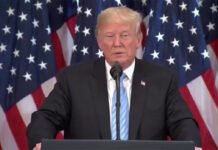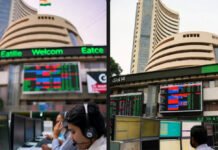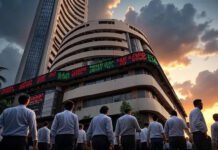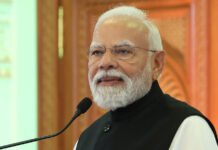Global financial markets are in freefall in what experts are calling the worst stock market crash since the 2008 global recession. Triggered by escalating trade war fears following sweeping US tariffs, investors across continents witnessed trillions of dollars wiped off within 48 hours.
📉 What Happened?
In a shocking move, the US administration announced ‘Liberation Day Tariffs’ targeting key trading partners like China, Japan, the European Union, and Vietnam. These protectionist duties have sent shockwaves across global supply chains, triggering panic selling in stock markets worldwide.
💥 How Bad Is the Damage?
US Markets:
S&P 500 plunges 10.5% in two days
Nearly $5 trillion in market value erased
Nasdaq hits 18-month low
Asia-Pacific:
China’s CSI300 tumbles
Japan’s Nikkei sheds 4.8%
Australia’s ASX 200 crashes 6.02%
Australian dollar dives below 60 US cents
Europe:
STOXX 600 hits 2-year low
FTSE and DAX reel under pressure
India:
Sensex drops 1350 points
Nifty falls below 22,000 amid global contagion fears
“This is not just a correction. It’s a wake-up call,” said global economist Vivek Sharma. “A multi-front tariff war could easily derail the world’s economic recovery.”
📊 Why the Markets Are Panicking
Supply Chain Disruptions – Tariffs mean higher input costs for companies globally.
Inflation Pressure – Import duties may push consumer prices up again.
Currency Volatility – Safe havens like gold and the US dollar surged.
Recession Risk – Analysts fear a sharp slowdown if the trade war intensifies.
💡 Expert Warning: $30 Trillion at Risk?
Former US Treasury Secretary Larry Summers warned that the ripple effects of a full-scale tariff war could destroy over $30 trillion in global market capitalization, echoing the 2008 meltdown.
🛡️ What Should Investors Do?
Top financial advisors urge caution:
Don’t panic sell – Review long-term goals
Diversify portfolios
Consider safe-haven assets like gold or government bonds
Watch central bank responses (rate cuts or liquidity injections may follow)
🚨 What’s Next?
Markets will closely monitor:
Reactions from China and the EU
US Fed’s next policy move
Potential diplomatic talks to defuse tensions
“We’re witnessing history. This crash may define how nations rethink globalization,” said Priya Malhotra, financial journalist.


